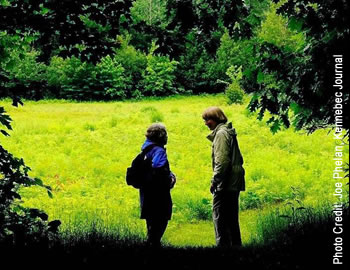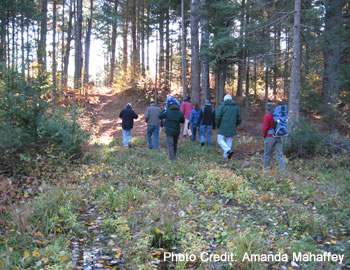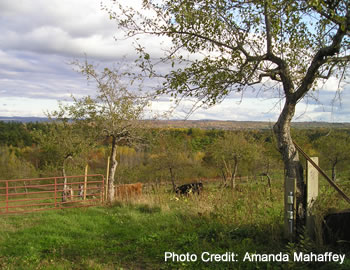Home → Your Woodland → Learn What You Can Do for Kennebec County's Woodlands → A Stewardship Storyline →What will happen to my woodland when I’m gone?
Your Woodland: A Stewardship Storyline
What will happen to my woodland when I’m gone?
A forest takes decades or centuries to grow. Your woodland, like all forests, is the result of many past decisions and activities. To ensure that it continues to grow and to provide future generations with the many benefits that you value, you must plan for the future beyond your ownership.
Most woodlands will be:
- inherited by children or family members, or
- sold to new landowners.
If it is important to you, you can ensure that all or part of your land:
- remains forested, and
- continues to be managed for particular values: scenery, wildlife, recreation, timber, soil and water quality, etc.
The ownership, stewardship, and management of your woodland and the decisions that may be made about whether your land will be divided, developed, harvested for timber, or managed for other woodland values are important considerations.
There are many resources available to landowners who want to plan for the long term. Estate planning or intergenerational transfer of property is one way for you to plan for the future of your woodland.
Would you like to learn more?
Would you like to talk with a person about this stewardship step? Here are some partners who can help:


